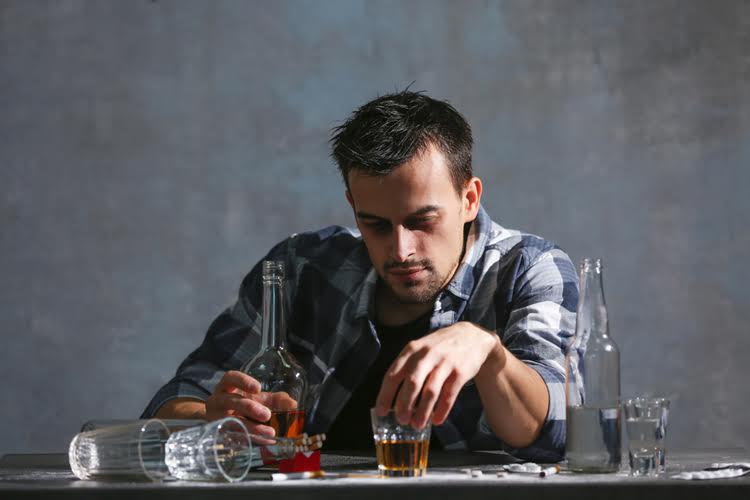Content
Now the workaholic feels compelled to work even harder to overcome his guilt. Acceptance comes when we feel a profound sense of hope and peace in coming to terms with our addiction and recovery.
It works if you work it as they like to say in Alcoholics Anonymous. They are the greatest most honest group of people I’ve met and lived a day at a time. But if we see ourselves as powerless, and God is there to help us “one day at a time,” then we’re looking at one brick — and we all can lay one brick at a time. I’ll just have one or maybe two; I can drink just one more day then stop, I’ll just smoke marijuana that’s not that bad, or I’ll only drink on the weekends, etc. How many times have we had these kinds of thoughts and believed them?
Step 1 in AA and Al-Anon Programs Is Honesty
In this way, admitting powerlessness means accepting that you can never drink alcohol again in the future – even in full amounts. You may view alcoholism as a weakness of your character or will, but this view may hinder your ability to accept you have an alcohol use disorder. Your alcohol addiction is a physical compulsion beyond your control—a progressive illness that defies common sense.
- Accept that something is wrong in your life and that you no longer have control.
- It states plainly that the addiction is ruining the person’s life.
- You admit you have a problem and begin to seek out assistance.
- His career began working in the accounting industry as a financial auditor.
I’d spent a good part of my life trying to control others so that I would feel safe and secure. I leaned on alcohol for years, then replaced booze with a drug called love. In my mid-30s, I encountered a traumatic event, the emotional dam broke, and all the feelings I’d stuffed for decades flooded out.
Tell Someone If You Feel Like Drinking
Alexandra works with Admissions and Clinical Departments for scheduling client admissions, transfers, discharges and outside appointments while maintaining positive relationships with all clients. Her primary focus is to provide all clients with a safe, structured environment while coordinating their care. Alexandra understands addiction from both familial and personal standpoints, as she is active in her own recovery. Alexandra is a mother, a daughter, a sister, a friend and has learned the value of recovery and succeeding in whatever she sets her mind to. Her innovative approach as Director of Operations gives her clients a safe and compassionate place at The Freedom Center to begin their recovery journey. Of drinking again in the future mean that you have not fully admitted to yourself that you are powerless over alcohol.
Does Alcoholics Anonymous actually work? – The Conversation Indonesia
Does Alcoholics Anonymous actually work?.
Posted: Mon, 04 Apr 2022 07:00:00 GMT [source]
It wasn’t long before I convinced myself I could just drink and smoke a little weed because I wasn’t like all of the other addicts and alcoholics around me. The powerless over alcohol truth is, not one alcoholic or addict is unique. We all suffer from the same powerlessness over mood and mind-altering substances, people, places, and things.
Step
We don’t dread a future of meeting attendance, sponsor contact and step work; instead we begin to see recovery is a precious gift. The first step of anything is a beginning, so the first step of the Alcoholics Anonymous 12 steps is the beginning of your recovery process.
What is Religious Trauma Syndrome?
Religious trauma syndrome (RTS) occurs when an individual struggles with leaving a religion or a set of beliefs that has led to their indoctrination. It often involves the trauma of breaking away from a controlling environment, lifestyle, or religious figure.
This cultivated the first glimmer of hope I felt in my sobriety – the idea that I was capable of living life in a different way. A new way of living, void of pain, and the awareness to recognize when I am powerless in a situation. The 12-step program is based on the belief that one day at a time we can take control of our lives by making positive changes. Many peer recovery groups use examples of powerlessness in sobriety to help participants accept themselves for who they are. Acceptance includes taking responsibility for our actions and accepting that we cannot change what has happened in the past. It’s not easy to admit this, but if we don’t accept that we are powerless, then we won’t be able to move forward. For many people, it is harder to admit that their life has become unmanageable than it was for them to admit their powerlessness.
Step One: We admitted we were powerless over alcohol—that our lives had become unmanageable.
Step one encompasses the total and utter powerlessness found in the depths of the disease of addiction. As crazy as it sounds, I was completely powerless over my addiction but I was also completely ignorant of how far down the scale I had fallen. I was living in a delusion in which I truly believed I could control my drinking and drugging. After all, I still had a job, a home, and money in my pocket between my next drunks, so I was able to convince myself that everything was fine.

Our website is not intended to be a substitute for professional medical advice, diagnosis, or treatment. Of all the Steps, this is the one that sets the stage for recovery to happen. That probably no human power could have relieved our alcoholism. Our stories disclose in a general https://ecosoberhouse.com/ way what we used to be like, what happened, and what we are like now. If you have decided you want what we have and are willing to go to any length to get it – then you are ready to take certain steps.At some of these we balked. We thought that we could find an easier, softer way.
Cheryl is a Clinical Social Worker licensed by the state of Maryland with over 30 years of experience in the field. She graduated from The University of Maryland with a master’s degree in social work. Her experience in a variety of settings, from leadership in a hospital setting to private practice, affords Cheryl a well-rounded skillset ready to render top-notch care and serve the needs of our diverse community. As a licensed clinician, Cheryl stands ready to diagnose and treat a wide spectrum of mental, behavioral, and personality disorders that sometimes present alongside a substance use disorder. Most addicts are filled with guilt, shame, remorse, and self-loathing when they come into the rooms of AA. They’ve also gotten very used to keeping secrets from pretty much everyone, so opening up about the nature and extent of your alcoholic behavior is going against the grain.
What happens when power is abused?
Harmful effects of abuse of power in the workplace:
Lack of manager trust in the organization. High employee turnover. High workplace absenteeism. Low employee productivity.
